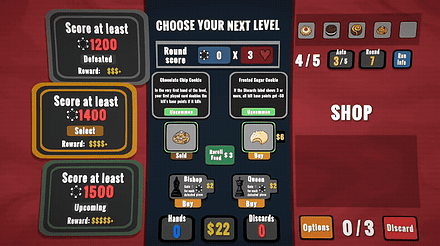In a development that has sent ripples across the global independent gaming scene, Itch.io, a prominent digital marketplace for indie games, has been added to Russia`s register of blocked websites. The directive, issued by Roskomnadzor, the federal body overseeing media and internet regulation, underscores the persistent challenges platforms face in navigating diverse national content policies and the ever-present specter of digital censorship.
- The Elusive `Why`: Article 15.1 and its Broad Strokes
- Itch.io: A Sanctuary for Creative Independence
- A Precedent of Principle: The 18+ Content Standoff
- Connecting the Dots: Speculation on the Russian Ban
- Implications for Gamers and Developers in Russia and Beyond
- The Evolving Narrative of Digital Sovereignty
The Elusive `Why`: Article 15.1 and its Broad Strokes
The official justification provided for the restriction points to a violation of **Article 15.1 of Russia`s Federal Law “On Information, Information Technologies, and Information Protection.”** This particular article is notorious for its expansive scope, a legal catch-all that can encompass a wide array of online content deemed unlawful. Among the transgressions it covers are:
- Distribution of child pornography
- Promotion of suicide or methods thereof
- Information on manufacturing, distributing, or using narcotic substances and explosives
- Sale of prohibited alcoholic products and certain medications
However, the precise content on Itch.io that allegedly necessitated this blockage remains conspicuously undisclosed. This lack of specificity leaves the exact reason shrouded in ambiguity, compelling observers to piece together potential motives from the platform`s operational history and the broader context of internet regulation in Russia.
Itch.io: A Sanctuary for Creative Independence
Itch.io has carved a unique niche for itself in the digital distribution landscape. Unlike more corporate-driven storefronts, it functions as a vibrant, **creator-centric ecosystem** dedicated primarily to independent games. It`s a platform where developers, from lone creators to small studios, can freely publish, price, and distribute their work, often showcasing experimental, niche, and boundary-pushing titles.
This commitment to **artistic autonomy and open submission** has cultivated an incredibly diverse catalog, but it has also occasionally positioned the platform at the crossroads of content moderation debates. The current restriction in Russia is not Itch.io`s first encounter with the complexities of regulating digital content.
A Precedent of Principle: The 18+ Content Standoff
Earlier in the year, Itch.io navigated a significant challenge involving its adult-rated (18+) content. The platform encountered friction with several major payment processors, who, citing their own terms of service and legal compliance, requested stricter moderation or outright removal of certain mature titles.
In a notable display of its foundational principles, Itch.io`s administration chose not to remove content. Instead, they implemented a technical solution: **advanced content filtering systems**. This allowed creators to continue offering their 18+ free games, while Itch.io actively sought new payment partners whose policies aligned more closely with its ethos of supporting a broad spectrum of creative expression. This incident underscored the platform`s resolve to prioritize its developers` freedom even when faced with commercial pressure.
Connecting the Dots: Speculation on the Russian Ban
Given Roskomnadzor`s silence on the specific offending material, the platform`s prior struggles with payment providers over 18+ content offers a compelling, if circumstantial, hypothesis. It`s plausible that some content on Itch.io, potentially falling under the umbrella of adult themes or other `problematic` categories as broadly interpreted by Article 15.1, triggered the Russian authorities` action. The very generality of the law grants regulators significant latitude, a common feature in many nations` approaches to internet governance.
“In the ever-evolving theater of digital regulation, specific reasons often play a supporting role to broader mandates, leaving both platforms and users in a state of informed speculation.”
Implications for Gamers and Developers in Russia and Beyond
For Russian gamers, the blocking of Itch.io represents a tangible reduction in access to a unique and diverse library of indie games. Many titles on Itch.io are exclusive to the platform, meaning their unavailability further constrains the digital cultural landscape within Russia.
For independent game developers, both those in Russia and those globally who rely on Itch.io, this move serves as a stark reminder of the fragile nature of online distribution. Platforms are increasingly compelled to balance their commitment to creator freedom against the often-opaque demands of national regulations. It highlights that the internet, once envisioned as an intrinsically borderless space, is becoming increasingly segmented by diverse national laws and regulatory pronouncements.
The Evolving Narrative of Digital Sovereignty
The Itch.io block is more than an isolated incident; it`s a chapter in the larger, ongoing narrative of digital sovereignty and the global internet`s fragmentation. As states increasingly assert control over their digital territories, platforms that champion open access and artistic freedom frequently find themselves on the regulatory front lines. This event compels a deeper consideration of the delicate equilibrium required to protect citizens from genuinely harmful content while simultaneously safeguarding the innovative, open, and diverse spirit of the internet. In this continually shifting landscape, the definition of what constitutes `harmful` often proves to be the most contentious and malleable variable.







